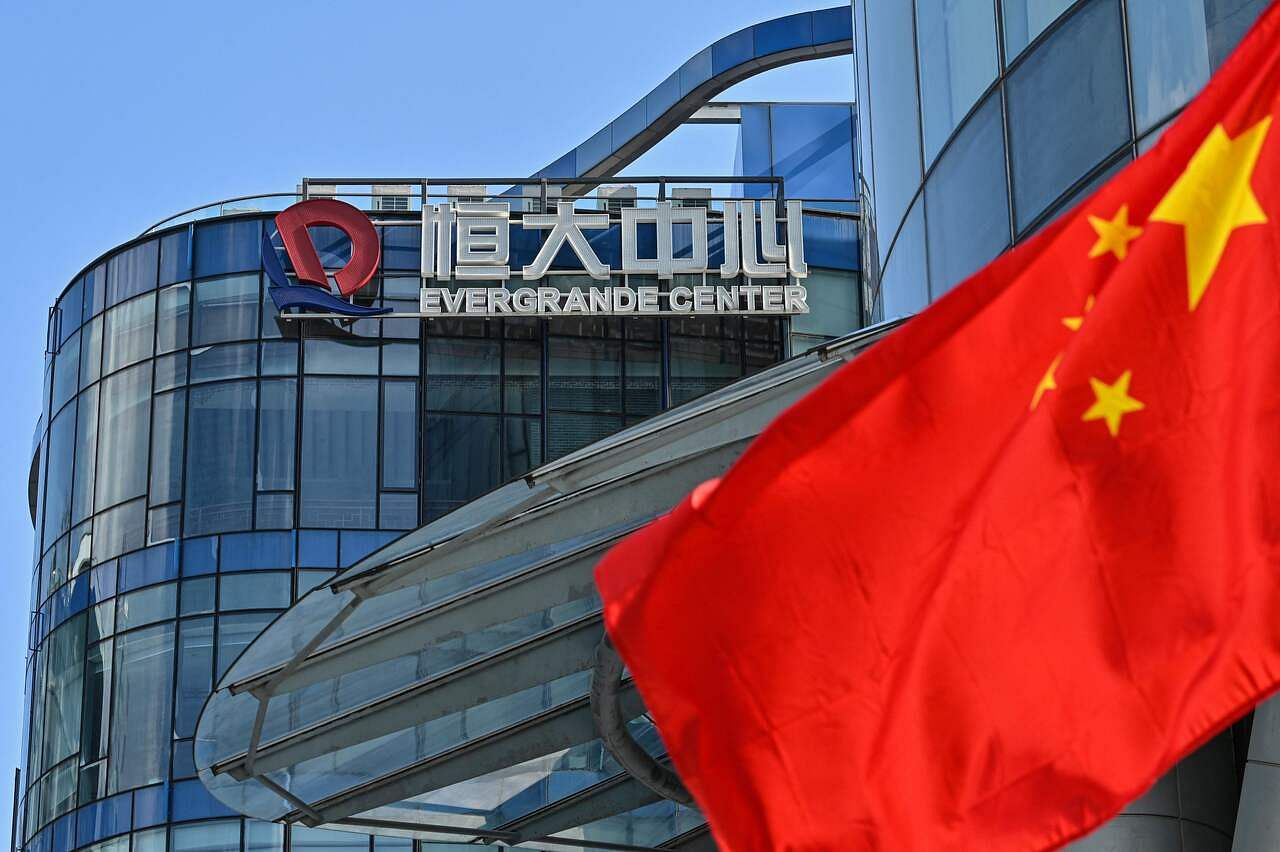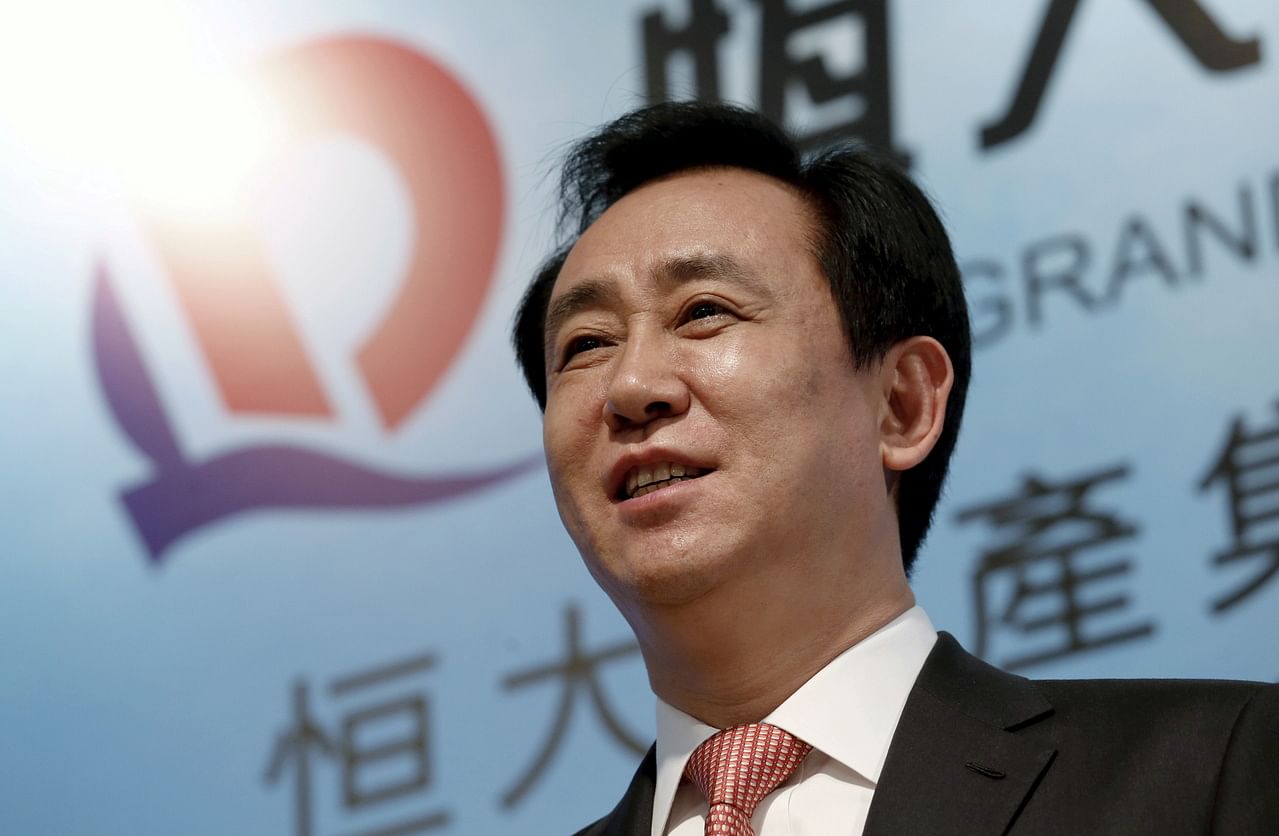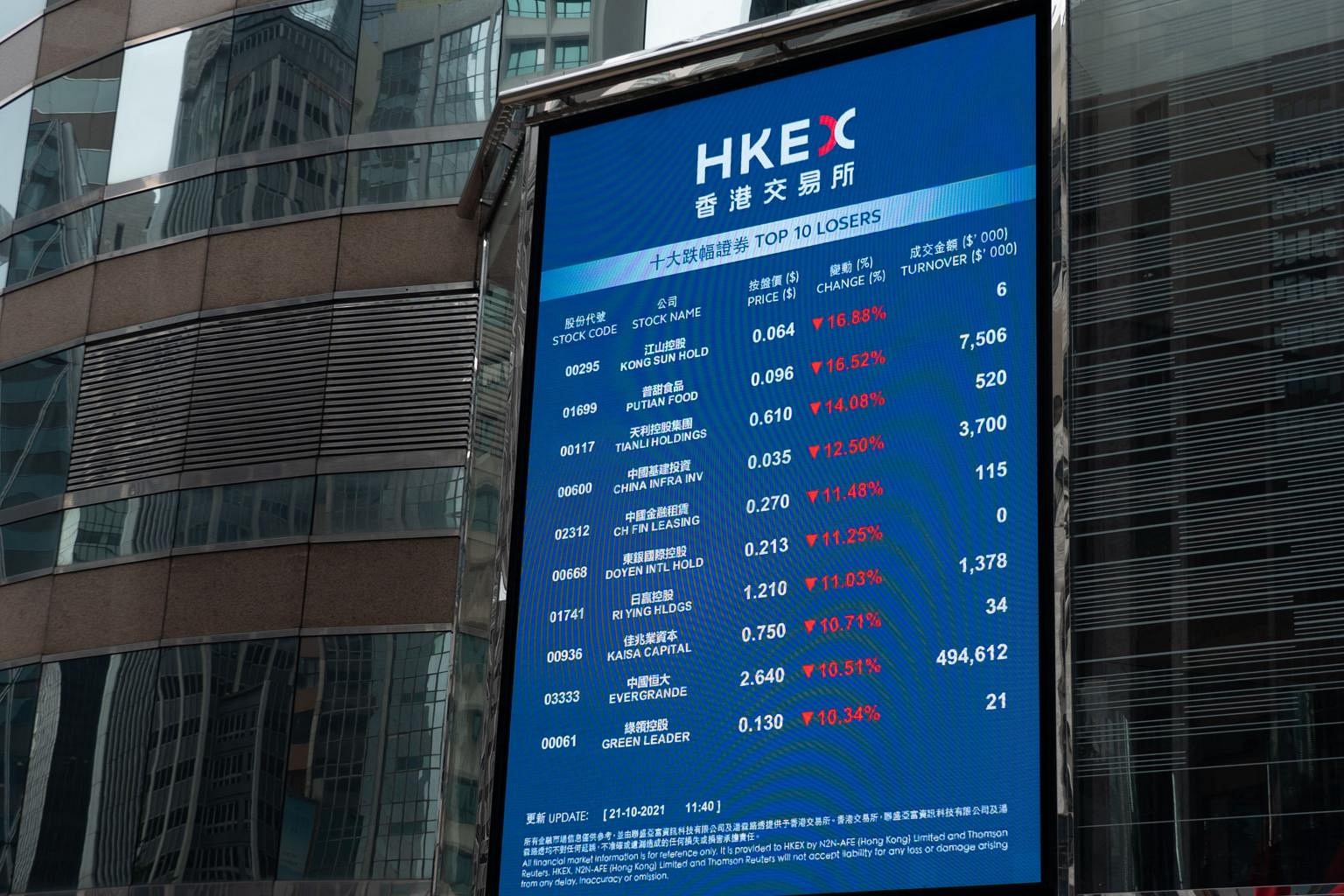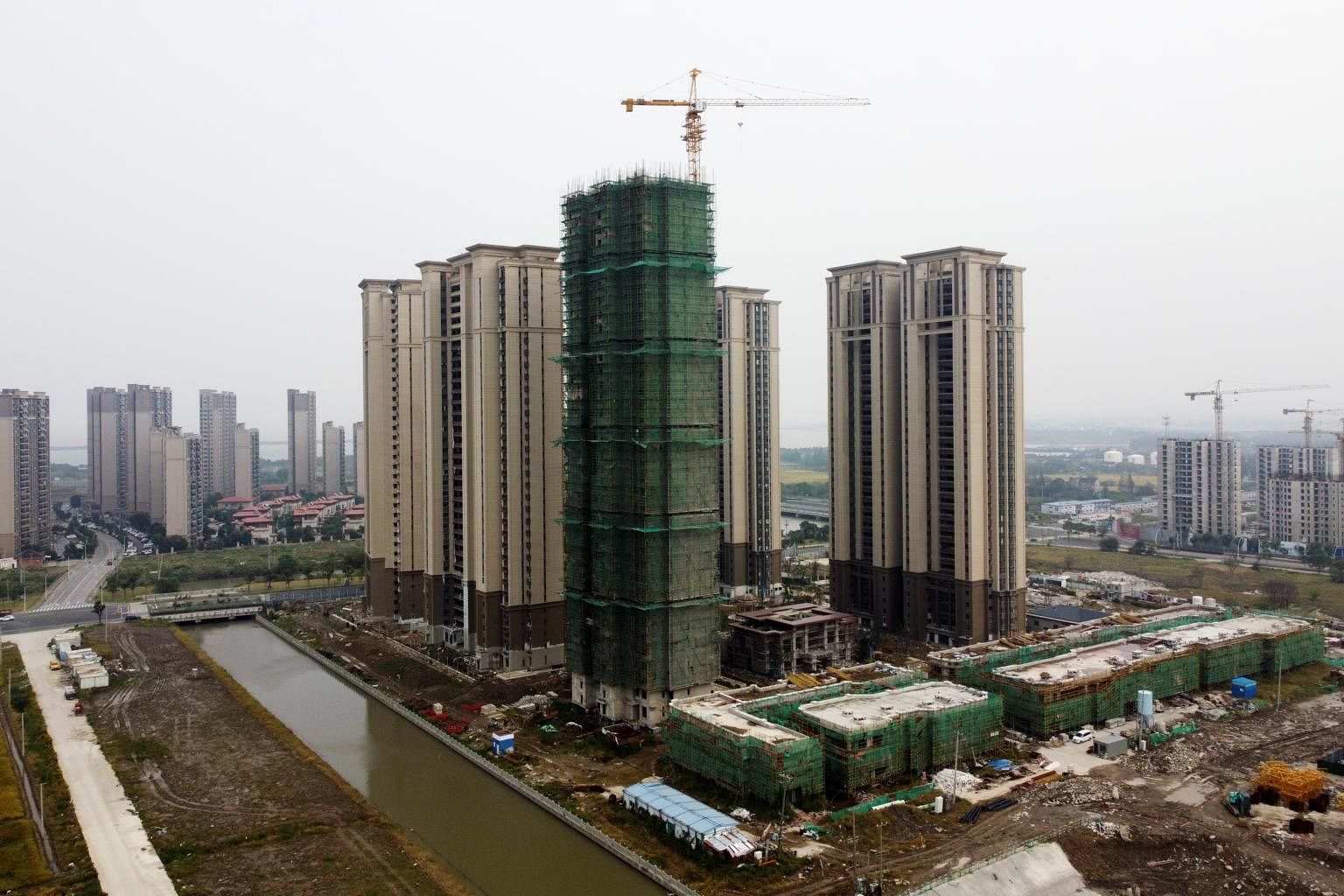Evergrande: The rise and fall of China's property giant
Sign up now: Get ST's newsletters delivered to your inbox

Evergrande failed to make repayments on more than US$1.2 billion in US dollar bonds.
PHOTO: AFP
BEIJING (AFP) - Chinese real estate behemoth Evergrande on Thursday (Dec 9) defaulted on its debt, said the Fitch Ratings agency, which cited the crisis-hit developer's failure to make repayments on more than US$1.2 billion (S$1.6 billion) in US dollar bonds.
The default is the property giant's first since it became mired in a debt crisis that has rattled investors who fear a wider contagion.
Another much smaller Chinese property firm, Kaisa, also defaulted on US$400 million of bonds on Thursday, Fitch said.
Here is a timeline of Evergrande's rise to become one of China's biggest developers, demise into one of its worst debtors and, ultimately, default:
1996: The dream begins
Steel-factory worker Hui Ka Yan starts Evergrande, targeting millions of middle-class Chinese climbing onto the property ladder across the rapidly urbanising country.
2009-2010: Start of expansion
After going public in 2009, Evergrande takes control of Chinese Super League club Guangzhou, renaming it Guangzhou Evergrande, and spends billions of dollars on foreign players, helping it to win a succession of titles.
The company also moves into the dairy, grain and oil businesses and later tries to build an electric car - kicking off a debt-fuelled spending spree.
2017: Richest man in Asia

A photo from March 29, 2016, shows Hui Ka Yan in a news conference in Hong Kong.
PHOTO: X00306
Mr Hui becomes the richest person in Asia with a net worth of US$43 billion.
2018: Central bank raises red flag
The first signs of trouble emerge when China's central bank adds Evergrande to its list of highly indebted conglomerates to watch, flagging that a potential collapse could cause systemic risks.
August 2020: 'Three red lines'
Regulators announce caps for three different debt ratios in a scheme dubbed "three red lines", which tightens lending to the real estate sector.
Evergrande sells 28 per cent of its property management unit for US$3 billion and starts offloading properties at increasingly steep discounts.
June 2021: Scrutiny on home deposits

The Chinese governments set a maximum cap on deposits.
PHOTO: AFP
As part of a crackdown on the property sector, local governments set a maximum cap on deposits, as well as hold and release funds to developers in batches after inspecting the progress of projects.
August 2021: Court battles

An advertiser sues the company for unpaid dues, the first in a string of cases filed by nervous sub-contractors. Work at several construction sites grinds to a halt.
Global ratings companies including Fitch, Moody's and S&P downgrade Evergrande's outlook to negative, making it harder for the troubled firm to borrow money.
September 2021: Public protests

People gather outside the Evergrande headquarters in Shenzhen on Sept 14, 2021.
PHOTO: AFP
As fears mount about its future, Evergrande says it is under "tremendous pressure" and may not be able to meet its liabilities.
It warns that negative media coverage and rumours have led to waning confidence and falling property sales during a normally buoyant September selling period.
Public protests erupt outside the company's headquarters in Shenzhen and other locations across China, with angry investors and home buyers demanding repayments.
October 2021: Stocks plunge

Evergrande suspends trading on the Hong Kong stock exchange on Oct 4, pending an announcement on a "major transaction".
The company had already missed several payments, with a 30-day grace period on an offshore note due in late October.
China's central bank says in mid-October that risks for the wider financial sector from Evergrande's crisis were controllable, in a bid to calm fears of financial contagion.
Evergrande shares resume trading on Oct 21, plunging more than 10 per cent at the open - hours after the company said a US$2.58 billion deal to sell a major stake in its property service arm had fallen through.
December 2021: 'Controlled demolition'

The local government in Guangdong - where the firm is headquartered - summons company chairman Hui, as it announces it is sending a working group to the company.
Analysts say this moment signals the formal start of the giant's debt restructuring - a process that will take years.
Mr Shehzad Qazi, managing director of data analytics firm China Beige Book, tells AFP the restructuring will "ultimately be a controlled demolition" - a bid by the Chinese government to let Evergrande fail, while seeking to contain the impact of its demise.
On Thursday, Fitch Ratings agency declares the company in default.


